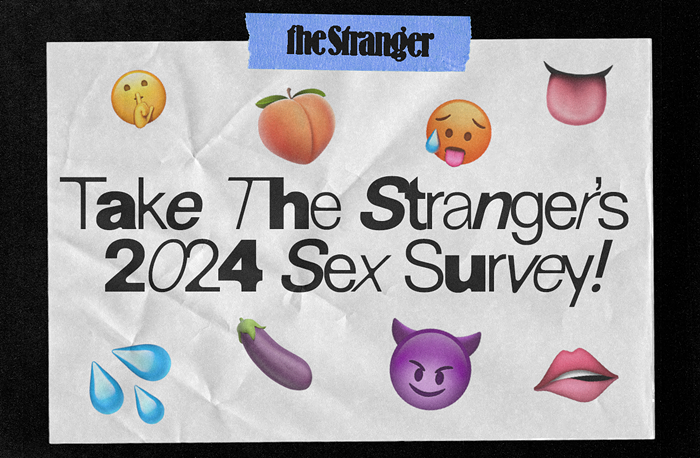So this post at Elle Magazine's website (a repost of something at Esquire's website) went mildly viral earlier this week. It summarized — allegedly summarized — the results of a new study looking at "post-relationship friendships," or PRTs. The headline of the post at Elle: "If You're Still Friends With Your Ex, Chances Are You're a Psychopath."
Researchers at Oakland University studied the post-relationship friendships of 861 people and found that those with darker personality traits were more likely to keep exes around as friends. What's more, they purposefully kept them around to exchange "desirable resources" like hookups and other sexual relationships. They also thought staying friends was more practical (for them) than cutting ties. So, if the person you are dating is still weirdly close with their ex — "she's just a friend!" — run away.
Science says run from people who are friends with their exes? I've always advised people to regard "on friendly terms with ex" as a good sign — something to run toward, not away from. IMO a person who's on good terms with their exes — on good terms, friends or friendly, not "weirdly close" (which is a pretty subjective measure) — is probably a better human being and a better potential BF/GF/NBF than someone who hates their exes and is hated by them. Which is not to say that you shouldn't date someone who isn't close to their exes. But there's a clear difference between someone who actively loathes and despises their exes and someone who has simply detached and moved on from their exes.
Anyway...
I went and read the study itself, which Elle gets some credit for linking, and the abstract didn't seem to be saying what Elle was saying it said. So I emailed the lead author of the study, Justin Mogilski, a PhD candidate at Oakland University, and asked if I could interview him about his research. He agreed. And — surprise! — Elle (and just about every other media outlet that reported on his study) got it wrong: science does not say "run from people who are friends with their exes."
My Q&A with Mogilski is after the jump.
DAN SAVAGE: Why do some people remain friends with their exes? Why do people enter into PRFs, or “post-relationship friendships,” as you call them?
JUSTIN MOGILSKI: Well, the point of our whole study was to identify all the different reasons people might remain friends with their exes. Presumably just as people get into relationships for lots of different reasons, they stay friends after the romantic relationship ends for lots of different reasons. We had people nominate reasons for why people remain friends with their exes and in the end we identified seven main reasons why people remain friends: Reliability and sentimentality (i.e., your ex was trustworthy or emotionally supportive), pragmatism (i.e., their friendship was practical or strategic), continued romantic attraction (i.e., you are still in love with your ex), children and shared resources (i.e., you had offspring together, shared bills, or worked together professionally), diminished romantic attraction (i.e., you lost sexual or romantic interest in your ex), social relationship maintenance (i.e., you had a shared group of friends and didn’t want to create awkwardness in your social groups), and sexual access (i.e., they wanted to still have sex with an ex).
DS: Here’s how Elle Magazine — in a widely-shared post — summed up the findings of your study: “If the person you are dating is still weirdly close with their ex— ‘she's just a friend!’ — run away.” Is that the takeaway? Should you dump someone who’s friendly with an ex?
JM: No, no. Actually, first off, this paper has really blown up. I think the initial press release was a little inaccurate. Some of the initial news reports had titles like “Narcissists and Psychopaths Love to Stay Friends with Their Exes,” when in reality we never actually measure narcissism or psychopathy in this study. What we did was measure were these things called DPT, or “dark personality traits.” In general, their presence indicates a tendency for a person to be willing to manipulate others for personal gain; a willingness to cheat, an aggressive and grandiose interpersonal style, being aggressive in social interactions — things like that. And what we found was that those types of characteristics were associated with very specific subsets of reasons for staying friends after a relationship ended. Of the seven reasons we identified, two of the reasons were associated with DPT. One was “pragmatism,” (i.e. the ex had a lot of money, they knew how to fix or repair things for me, they had desirable social connections) so it made practical sense to keep them around, to keep them in your life. The other reason that was associated with DPT was sexual access, which is exactly what it sounds like.
So it wasn’t, “Anyone who is friends with an ex is a psychopath,” but, “People who scored higher on DPT rated these two reasons for remaining friends with an ex more highly than people who scored lower on DPT."
DS: Are people with DPT bad boyfriends or girlfriends generally?
JM: DPT, let’s get real about it, everyone has them to a little bit of a degree. Everyone to some degree is willing to manipulate others, willing to cheat, all depending on the situation. People who score higher for DPT might be up for doing these sorts of things a little more often. That doesn’t mean they’re all going to be bad boyfriends or girlfriends or whatever, but on average they might prioritize these reasons — selfish reasons — a little more often.
DS: So someone who is friends with an ex isn’t necessarily a psychopath and isn’t necessarily someone with more than their fair share of DPT. So your advice, contra Elle, would be to go ahead and keep dating someone who is friends with one of their exes? That by itself isn’t reason enough to dump someone?
JM: Yes, of course.
DS: I’ve advised people for years to pay attention to the way people they’re dating talk about their exes. If they have nothing but bad things to say about all of their exes, beware — they are the common denominator in a lot of failed relationships. If they’re friends and/or friendly with their exes, I've always said that’s a good sign. Should I stop giving that advice?
JM: I don’t think that’s terrible advice. I don’t know if there’s very good empirical evidence showing that being “friendly with exes” is a good sign or not. I could see why that might be the case. While I really cannot confidently answer that question for you, I would guess that in some cases continuing to be friends with an ex would indicate that someone can get along with people, it means they’re willing to invest in their relationships, and if they’re treating an ex well now, that means they may wind up treating you well, if the relationship ends.
DS: Are you friends with any of your exes?
JM: I’m friends with very few of my exes. I’ll put it that way.
DS: In my experience — with the column and the podcast — it’s always straight people who are threatened by the “friends-with-exes” thing. Gays seem a lot less freaked by their partner being on good terms with their exes. Season Two of Transparent, for example, opened with a lesbian wedding where the ex-spouses of the two women getting married were in the wedding party. My ex came to my real-life wedding. I don’t think that would happen at a straight wedding. So, basically, I guess I’m asking… what’s wrong with straight people?
JM: There’s some research on jealousy in hetero and homo relationships, and they found that people are less likely to report being jealous toward a same-sex relationship partner. I would be curious to know why those negative feelings of jealousy are stronger in hetero relationships than they are in homosexual relationships.
DS: You’re dodging the question. Again, what is wrong with straight people?
JM: I’m not sure if I can answer that one confidently.


















